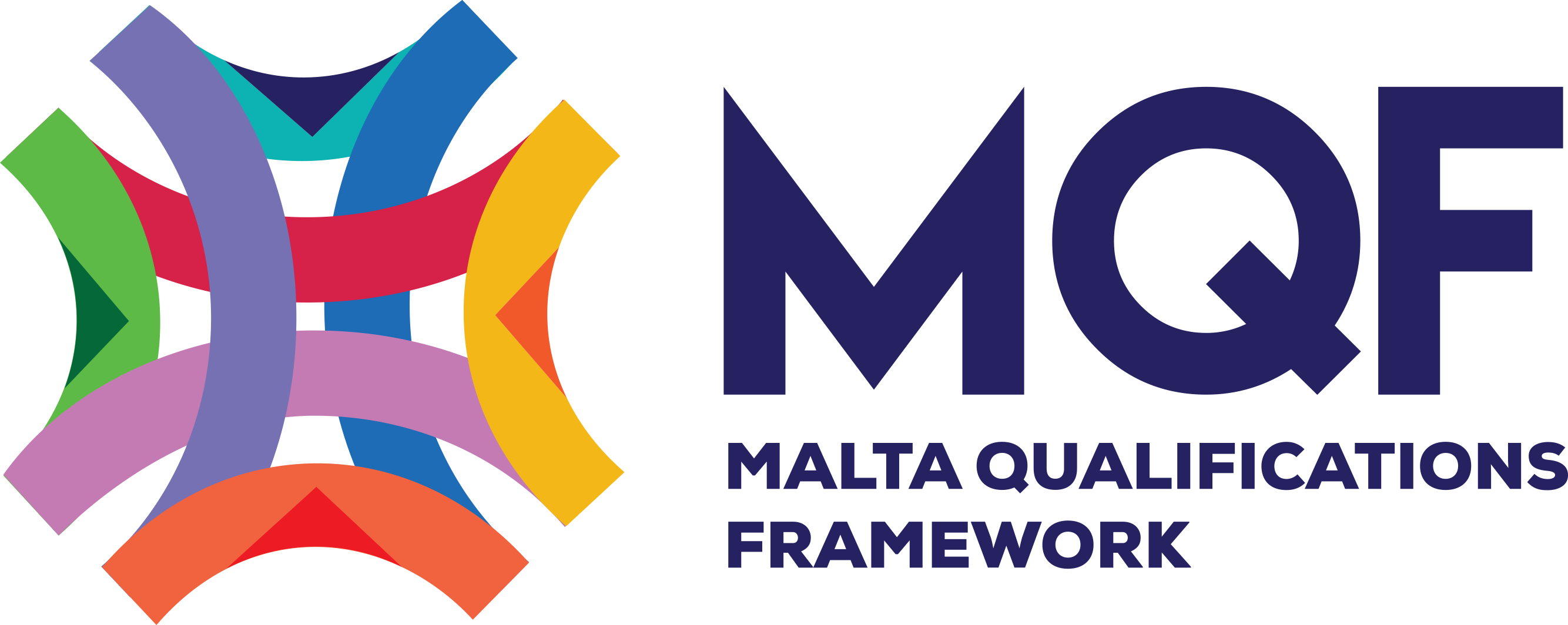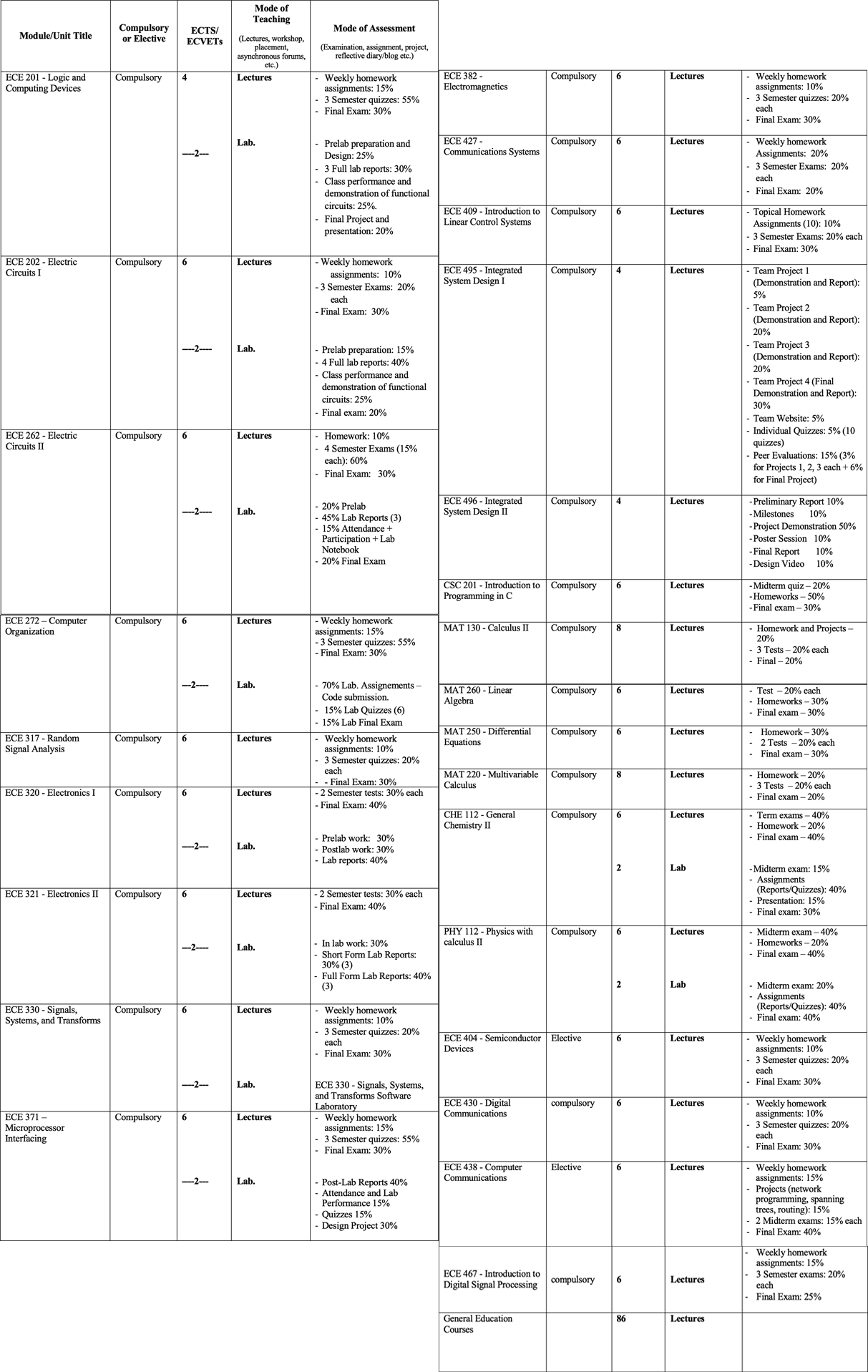BSc in Electronics & Communication Engineering

This Program is accredited by MFHEA
Electronics & Communication Engineering Course Overview
The Bachelor of Science in Electronics and Communications Engineering is designed for students interested in focusing on electronics and communications within the broader field of electrical engineering, such as telecommunications engineering, computer science engineering, consumer electronics engineering, electronics circuit design engineering, electronics test and maintenance engineering, or electronics and communications research engineering.
The BSc in Electronics and Communications Engineering program prepares graduates for employment as professional engineers in the field of electronics and communications engineering. The knowledge and skills graduates acquire enable them to work in a wide range of related occupations.
Entry Requirements for this Program
Entry Requirements
Materials required in the undergraduate admissions application:
- Official AUM application
- Personal statement
- Secondary school transcript
- Minimum of grades 10 and 11
- Documents should be in English
- Official transcript and diploma must be presented before course commences
- Teacher or counsellor recommendation letter
- ACT* or SAT* results (for students from the United States of American)
- Proof of English Proficiency (for students who did not graduate from a secondary school using English as a medium of instruction). Acceptable proof of English proficiency includes:
- IELTS
- TOEFL
- ACT* or SAT* English/reading score results
- Other forms can be decided on a case-by-case situation
Undergraduate Admission Requirements:
- 12 years of schooling expected
- Secondary school completion, which can include:
- High School Program
- 80% or above for grades 10 and 11 in a US system or the equivalent standards in other countries
- IB Certificate
- GCSE/IGCSE (General Certificate of Secondary Education/International GCSE)
- Five subject exams with grades of D or above on each
- A/S or A Levels with a minimum of D
For Maltese secondary (sixth form) schooling:
Matriculation certificate
5 or above in English and Mathematics
A/S or A Levels: three subject exams with a minimum of D
Other school leaving certificate may be considered:
- Can include IB, AP, or EB
- Proof of English Proficiency (for students who did not graduate from a secondary school using English as a medium of instruction). Acceptable proof of English proficiency includes:
- IELTS minimum of 6.0
- TOEFL
- 550 minimums for paper based
- 79 minimum iBT
- 213 minimum cBT
- ACT or SAT English score results
- ACT reading 18 or above and 20 or above in English
- SAT reading and writing score of 550 or above
- IGCSE English as a second language
- Grade C or above
- Other forms can be decided on a case-by-case situation
Admissions decisions are based equally on the above requirements as follows:
- 25% on the student high school averages in grades 10 and 11
- 25% on the English proficiency test and/or on the SAT or ACT
- 25% A consideration of personal qualities and academic motivation, as determined in the completed application and personal statement
- 25% recommendations from teachers and school counsellor
- Work Experience: It is possible that in a particular case a student who does not meet the required minimum grades may be admitted if he or she has significant related experience in a particular field of at least 2 years.
Additional requirements: Please note that the admissions requirements for specific degree programs may be higher than the general requirements indicated here. For example, degree programs in Engineering require:
- IELTS score of 6.5
- For Engineering Students from the British System:
- A level A2 mathematics
- BBB at A Level
- GSCE: Science C.
- At least one other Science/Technology subject (or equivalent qualification) from the following: Electronics, Materials Science, Physics, Biology, Chemistry, Geology, IT, Further Mathematics, Mechanics, Dynamics or General Engineering.
- Minimum grades at GCSE and AS level are set at C
- Other suitable skills or experience gained in a relevant industry may be considered.
- I strongly recommend that the minimum grades at GCSE and AS level are set at C.
- *The ACT and SAT can be done several times and the highest scores from each section will be used.
Conditional admission is offered for applicants who meet all requirements except English proficiency. Conditional admits must enrol as full-time students in the AUM English for Academic Purposes program. The minimum English Proficiency scores for conditional admits is 4.5 IELTS for undergraduates (or equivalent) or 5.5 IELTS for graduate students (or equivalent).
Program Details
Program length:
4 years / Full-Time
GPA needed to earn the degree:
2.0 or higher
Credits needed to earn the degree:
124 US credits / 248 ECTS
Degree level:
MQF Level 6
Pass Rate:
73%
Overall Course Objectives
The main objective is to prepare graduates for employment as professional engineers in the field of electronics and communications engineering.
To achieve this objective, the program will endeavour to provide students with the following knowledge, skills, and competences.
Knowledge
Students who major in Electronics and Communications Engineering will acquire knowledge in the following areas:
- Basic Sciences (chemistry and calculus based physics)
- Mathematics (calculus, differential equations, probability and statistics, and linear algebra)
- Engineering Areas:
- Electric circuits and associated labs
- Electronics and associated labs
- Digital systems, computers and associated labs
- Signals, systems, & communications and associated lab
- Control systems and integrated systems design
- Students will demonstrate an understanding of professional and ethical responsibility. (ABET Student Outcome f)
- Students will demonstrate the broad education necessary to understand the impact of engineering solutions in a global, economic, environmental, and societal context. (ABET Student Outcome h)
- Students will develop a recognition of the need for life-long learning. (ABET Student Outcome i, part 1)
- Students will demonstrate a knowledge of contemporary issues. (ABET Student Outcome j)
Skills
Students will develop analytical and critical thinking skills.
- Students will develop appropriate information technology (IT) skills.
- Students will demonstrate an ability to apply knowledge of mathematics, science, and engineering. (ABET Student Outcome a)
- Students will demonstrate an ability to design and conduct experiments, as well as to analyze and interpret data. (ABET Student Outcome b)
- Students will demonstrate an ability to design a system, component, or process to meet desired needs within realistic constraints such as economic, environmental, social, political, ethical, health and safety, manufacturability, and sustainability. (ABET Student Outcome c)
- Students will demonstrate an ability to function on multidisciplinary teams (ABET Student Outcome d)
- Students will demonstrate an ability identify, formulate, and solve engineering problems (ABET Student Outcome e)
- Students will demonstrate an ability to communicate effectively. (ABET Student Outcome g)
- Students will demonstrate an ability to engage in life-long learning (ABET Student Outcome i, part 2)
Students will demonstrate an ability to use the techniques, skills, and modern engineering tools necessary for engineering practice. (ABET Student Outcome k)
Competencies
- Ability to independently analyze, design, and implement electronic systems
- Ability to independently analyze, design, and implement communications systems
- Ability to collaborate effectively with a team to design and development a system involving electronics and/or communications components.
- Ability to use computer hardware and software to solve engineering problems.
- Ability to effectively utilize laboratory equipment to analyze electronic systems.
- Ability to apply mathematics to analyze and design engineering systems.
Learning Outcomes
Learning Outcomes for Communication Skills for the whole course,
The learner will be able to:
- Produce effective written lab reports.
- Effectively communicate orally with team members in the capstone design class.
- Produce well-written lab reports and give an effective oral presentation of the capstone design project.
Learning Outcomes for Learning to Learn Skills for the whole course,
The learner will be able to:
- Secure employment where electronics and communication engineering skills can be utilized.
- Proceed to graduate work in electronics and communication engineering and related fields.
- Independently study new emerging technologies, using the frameworks and tools acquired in the program.
General Pedagogical Methods used for this Program
The Electronics and Communications Engineering program addresses the real-world needs of industry through a combination of lecture and laboratories courses, based on a strong foundation of mathematics and science, and culminating with a major capstone design experience.
Lecture courses are taught using a combination of theory and applications. Pedagogical approaches vary substantially from module to module and are described in detail in the description of each module.
General Assessment Policy and Procedures
Students are required to maintain a minimum GPA of 2.0 throughout the course. Failure to maintain such standard results in academic probation.
A student in academic probation can continue to enrol in new modules for two semesters, while the student is strongly encouraged to retake modules in which grades were unsatisfactory. If the GPA does not reach the required threshold after two semesters of academic probation, the student may be dismissed from the program.
Students are required to obtain a grade of C- or better in each of the course modules outside of the General Education Component. If a student receives a grade below C-, the students must retake the module and earn a grade of C- or higher in order to graduate.
Assessment procedures vary substantially form module to module and are described in detail in the description of each module.
Relationship to Occupation/s
- Telecommunications engineering
- Computer science engineering
- Consumer electronics engineering
- Electronics circuit design engineering
- Electronics test and maintenance engineering
Electronics and communications research engineering
Program Structure Sample
